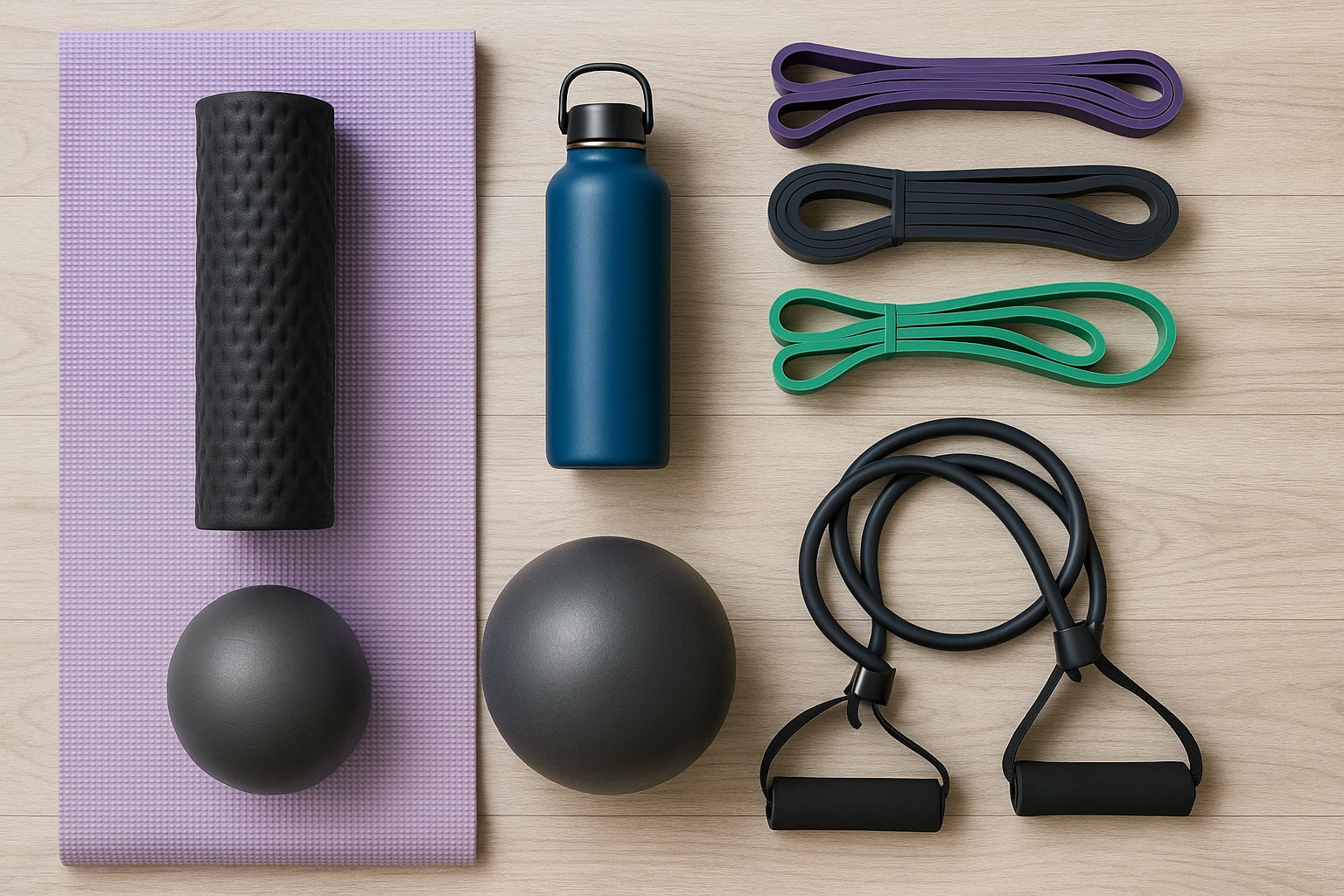Benefits of Regular Exercise
The Transformative Benefits of Regular Exercise
Regular physical activity is often touted as a cornerstone of a healthy lifestyle. Yet, many individuals struggle to incorporate exercise into their daily routines. Understanding the myriad benefits of regular exercise can serve as a powerful motivator. This article delves into the extensive advantages of maintaining an active lifestyle, highlighting how exercise can enhance both physical and mental well-being.
Understanding Exercise
Exercise encompasses any movement that engages your muscles and requires energy expenditure. This can range from structured workouts, such as running or swimming, to everyday activities like walking or gardening. The key is to find activities that you enjoy, making it easier to integrate them into your life.
Types of Exercise
- Aerobic Activities: These include running, cycling, and swimming, which elevate your heart rate and improve cardiovascular health.
- Strength Training: Involves lifting weights or using resistance bands to build muscle mass and strength.
- Flexibility Exercises: Activities like yoga and stretching enhance flexibility and reduce the risk of injury.
- Balance Training: Important for older adults, these exercises help prevent falls and maintain stability.
Weight Management
One of the most recognised benefits of regular exercise is its role in weight management. Engaging in physical activity helps to burn calories, which is essential for maintaining or losing weight.
How Exercise Affects Weight
- Caloric Burn: The more intense the activity, the more calories you burn. This can help offset the calories consumed through diet.
- Metabolism Boost: Regular exercise can increase your metabolic rate, allowing you to burn more calories even at rest.
- Muscle Mass: Strength training builds muscle, which burns more calories than fat, further aiding in weight management.
Cardiovascular Health
Regular physical activity is crucial for maintaining a healthy heart. Exercise strengthens the heart muscle, improves circulation, and can lower blood pressure.
Benefits for Heart Health
- Reduced Risk of Heart Disease: Engaging in at least 150 minutes of moderate-intensity exercise weekly can significantly lower the risk of heart disease.
- Improved Cholesterol Levels: Exercise can increase high-density lipoprotein (HDL) cholesterol, the "good" cholesterol, while lowering triglycerides.
- Enhanced Blood Flow: Regular activity promotes better blood flow, which is vital for overall cardiovascular health.
Mental Well-being
The psychological benefits of regular exercise are profound. Physical activity can enhance mood, reduce anxiety, and combat depression.
How Exercise Improves Mental Health
- Endorphin Release: Exercise stimulates the release of endorphins, chemicals in the brain that act as natural painkillers and mood elevators.
- Stress Reduction: Engaging in physical activity can help alleviate stress and promote relaxation.
- Cognitive Function: Regular exercise has been linked to improved memory and cognitive function, particularly in older adults.
Enhanced Sleep Quality
Struggling with sleep? Regular physical activity can help you fall asleep faster and enjoy deeper sleep.
The Connection Between Exercise and Sleep
- Energy Expenditure: The physical exertion from exercise can lead to increased fatigue, making it easier to fall asleep.
- Body Temperature Regulation: Exercise raises your body temperature, and the subsequent drop in temperature post-exercise can signal your body that it’s time to sleep.
- Routine Establishment: Incorporating exercise into your daily routine can help regulate your sleep patterns.
Strengthened Muscles and Bones
As we age, maintaining muscle mass and bone density becomes increasingly important. Regular exercise plays a vital role in this aspect of health.
Benefits for Musculoskeletal Health
- Muscle Strength: Engaging in strength training helps build and maintain muscle mass, which is crucial for overall mobility.
- Bone Density: Weight-bearing exercises, such as running or resistance training, can help increase bone density and reduce the risk of osteoporosis.
- Injury Prevention: Stronger muscles and bones contribute to better balance and coordination, reducing the risk of falls and injuries.
Chronic Disease Management
Regular exercise can be a powerful tool in managing chronic health conditions. It can help alleviate symptoms and improve overall quality of life.
Conditions Benefited by Exercise
- Diabetes Management: Physical activity helps regulate blood sugar levels and improves insulin sensitivity.
- Arthritis Relief: Gentle exercises can reduce pain and improve function for those suffering from arthritis.
- Heart Disease: Regular exercise can help manage symptoms and improve heart health for individuals with cardiovascular conditions.
Boosted Immune Function
Engaging in regular physical activity can enhance your immune system, making you less susceptible to illnesses.
How Exercise Supports Immunity
- Increased Circulation: Exercise promotes better circulation, allowing immune cells to move more freely throughout the body.
- Reduced Inflammation: Regular physical activity can help lower levels of inflammation, which is linked to various chronic diseases.
- Stress Reduction: Since stress can weaken the immune system, the stress-relieving benefits of exercise can indirectly support immune health.
Social Connections
Exercise can also foster social connections, which are vital for emotional well-being. Participating in group activities or classes can enhance your social life.
Building Community Through Exercise
- Group Activities: Joining a fitness class or sports team can help you meet new people and build friendships.
- Support Systems: Exercising with friends or family can provide motivation and accountability.
- Shared Goals: Working towards fitness goals together can strengthen bonds and create a sense of community.
Increased Longevity
Numerous studies have shown that regular physical activity is associated with a longer lifespan. Engaging in exercise can significantly reduce the risk of premature death.
Factors Contributing to Longevity
- Reduced Risk of Chronic Diseases: Regular exercise lowers the risk of conditions such as heart disease, diabetes, and certain cancers.
- Improved Quality of Life: Staying active can enhance your overall quality of life, making daily activities easier and more enjoyable.
- Mental Resilience: The mental health benefits of exercise can contribute to a more positive outlook on life, which is linked to longevity.
Fun and Enjoyment
Exercise doesn’t have to be a chore. Finding activities you enjoy can make physical activity a fun part of your daily routine.
Making Exercise Enjoyable
- Variety of Activities: Explore different types of exercise to find what you love, whether it’s dancing, hiking, or swimming.
- Incorporate Play: Engage in activities that feel like play, such as playing sports or taking a dance class.
- Set Challenges: Setting personal challenges or goals can make exercise more exciting and rewarding.
Conclusion
The benefits of regular exercise are extensive and multifaceted, impacting nearly every aspect of health and well-being. From weight management and cardiovascular health to improved mental well-being and social connections, the advantages of maintaining an active lifestyle are undeniable. By incorporating physical activity into your daily routine, you can enhance your quality of life and enjoy a healthier, happier existence. Whether you’re a seasoned athlete or just starting, the journey towards a more active lifestyle is always worthwhile.



